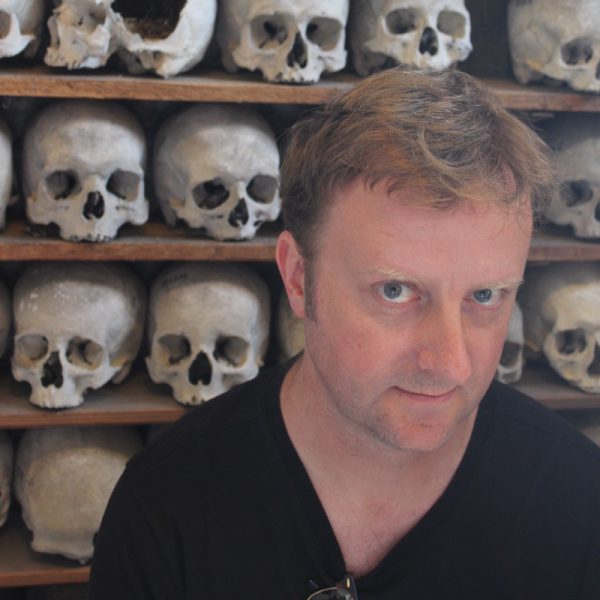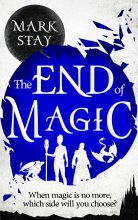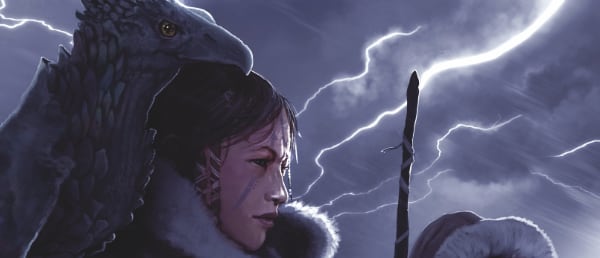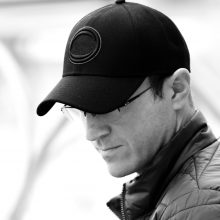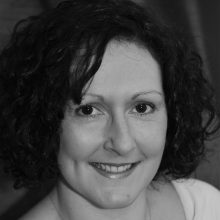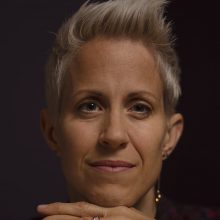The End of Magic by Mark Stay
What led you into writing?
Necessity, panic and fear. I had always written, and I had the greatest time writing comedy sketches with friends when I was at school, but I wanted to act (I thought it would be easier and would pay better. More fool me)… My wife and I ran our own theatre company and we were planning to do a play by Johnny Speight, but he had died and I could no longer get the rights… I had a theatre booked and no play! I knuckled down and wrote a comedy in about eight weeks and we rehearsed it, staged it, and audiences loved it. A friend who worked in TV took me to one side and said, “There are too many actors, but not enough writers. You can write. Keep writing.” That was about twenty years ago… I think that was his way of telling me I was a terrible actor.
I did a play every year in that studio theatre in Epsom for four or five years and it was a great way to learn what worked and what didn’t. The audience was right there and you could feel the vibe. Our audiences weren’t huge, so it was the best place to make mistakes… and I made plenty.
How does a typical day look?
I’m usually up at six to take my son to his bus to school (we live in the middle of nowhere) and I’m writing by seven thirty and try to write all morning. I then need to get off my butt, and there’s a great cafe a couple of miles away over some beautiful countryside and I go there to do podcast and admin stuff. I try to get out whatever the weather. In the afternoon there’s often something to record for the podcast, or an edit to listen back to, and I’m constantly on our social media. I’ll try and read something in the evening. That’s the thing I miss the most. Having the time to lose myself in a book. What used to be reading time is now writing time. I know Stephen King says he writes in the morning and reads in the afternoon, and it’s great advice, but he doesn’t have a podcast to run!
In what ways do your characters test your abilities?
I spent too long trying to force them to do stuff. I was a big outliner and I would plan out their adventures without having the decency to get to know them first, and this would cause all sorts of contrivances. I now write a bit, then outline a bit, then write a bit more, then outline a bit… That way we get to know each other along the way and surprise each other.
What’s your setup?

MacBook and Scrivener. I was a big Doubting Thomas with Scrivener, but the podcast made me a convert (they were our sponsor). I love its flexibility and being able to have all my research and notes in one place. When I get stuck I’ll usually jump into a notebook and scribble by hand and I have a pen and a stack of Post It Notes by the bed.
Once I get into the edit and track changes stage I switch to Apple’s Page’s (you can’t track changes in Scriv, sadly), which is much cleaner and more reliable than MS Word.
What lasting effects have your favourite authors had on your writing and style?
I loved reading Terry Pratchett and Neil Gaiman in my teens and twenties, but it soon became apparent that I could never write like them and any attempt I made to ape them was just embarrassing for all concerned. When I was writing plays I loved David Mamet and the TV writer John Sullivan, which made for some really strange mash-ups. It took me quite a while to stop wearing other writers’ shoes and find my own style, but I took little bits from all of them. Pratchett’s love of the underdog, Gaiman’s sense of wonder, Sullivan’s working class cheekiness, Mamet’s confrontational shoutiness… It feels less of mess these days and more like me. I think…
More recently, I’ve been paying more attention to the likes of Elmore Leonard and P.G. Wodehouse who strip everything right back and make it look so easy. They just get on with it and I love that and want to adopt that more and more as I go on. Don’t bore us, get to the chorus.
What do you do for inspiration?
I’m trying to train myself to be more of a listener, particularly to people I disagree with. A good writer needs to be able to present both sides of the story and play them against each other. I used to jot down ideas and concepts all the time, but without fun characters to drive them they can be empty experiences.
I’m also trying to read and watch outside my usual genres. I think if you only read the stuff you write, you’re in danger of repeating the same old tropes. My new book is a fantasy novel, but the biggest influences on it were Jo Nesbo’s Headhunters and the Coen Brothers’ Miller’s Crossing.
What repeating themes do you find yourself pulling into your stories?
Panic, death, fear, time running out… All the things that keep me awake at night.
How do you wind down?
Playing guitar and drums loudly like a bad busker who doesn’t care if he gets arrested… And long walks. Walks are good. I’m usually asked to leave the house and take a walk after I’ve been playing guitar.
What sort of challenges do you regularly overcome while world-building?
I try not to get bogged down in it. I used to to little histories, maps, biographies… Not any more. It’s like research, it’s best done after the first draft, then you only have to worry about what’s important to the book. I confess I cringe a bit when I see fantasy novels with appendices and excessive backstory. I know there’s a certain kind of reader who digs that stuff and good for them, but I’m too old for that crap these days. I blame the Tolkein estate. Just tell me a good story and get on with it.
What’s the most useful advice you could give to an aspiring author?
If you’re starting out, then write as much as you can. Twenty minutes a day will get you into the habit. Set deadlines and make a declaration. This is one of the biggest things we’ve learned on the Bestseller Experiment podcast: put your head over the parapet and tell people what you’re going to do and when… Even if you don’t meet the deadline, you’ll have something that you didn’t have before and you can work with that and create something amazing. It works every time.
Tell us about the book you’re promoting.
Can I be cheeky and plug two…? On the podcast we’ve set ourselves the ridiculous challenge to sell ten thousand copies of our novel Back To Reality by the end of the Glastonbury music festival (our story climaxes there). That’s 10k by 30th June 2019… if you love a fun time travel romp then grab a copy and help save our butts.
My new book for 2019 is a fantasy novel, The End of Magic. I wanted to take the usual ingenue-discovers-magical-powers thing and flip it on its head. Here I take a couple of mages who have great power, and are both quite cocky with it, and whip it away from them and make their lives hell for about 350 pages. It’s fun, bloody and bloody fun.
👋 Hi! I run Author Interviews
As a new writer I found myself itching to contribute to a thriving, creative community, so I made Author Interviews and I've met loads of wonderful people in the process. You can buy my debut fantasy RINGLANDER: THE PATH AND THE WAY from Amazon.
